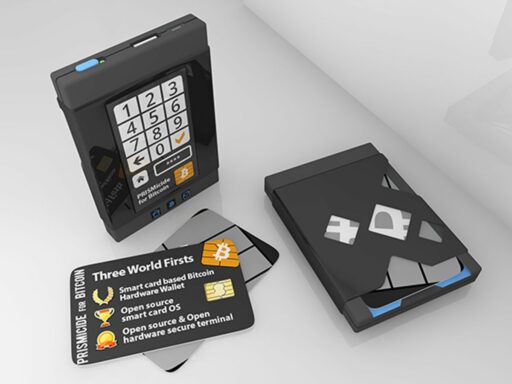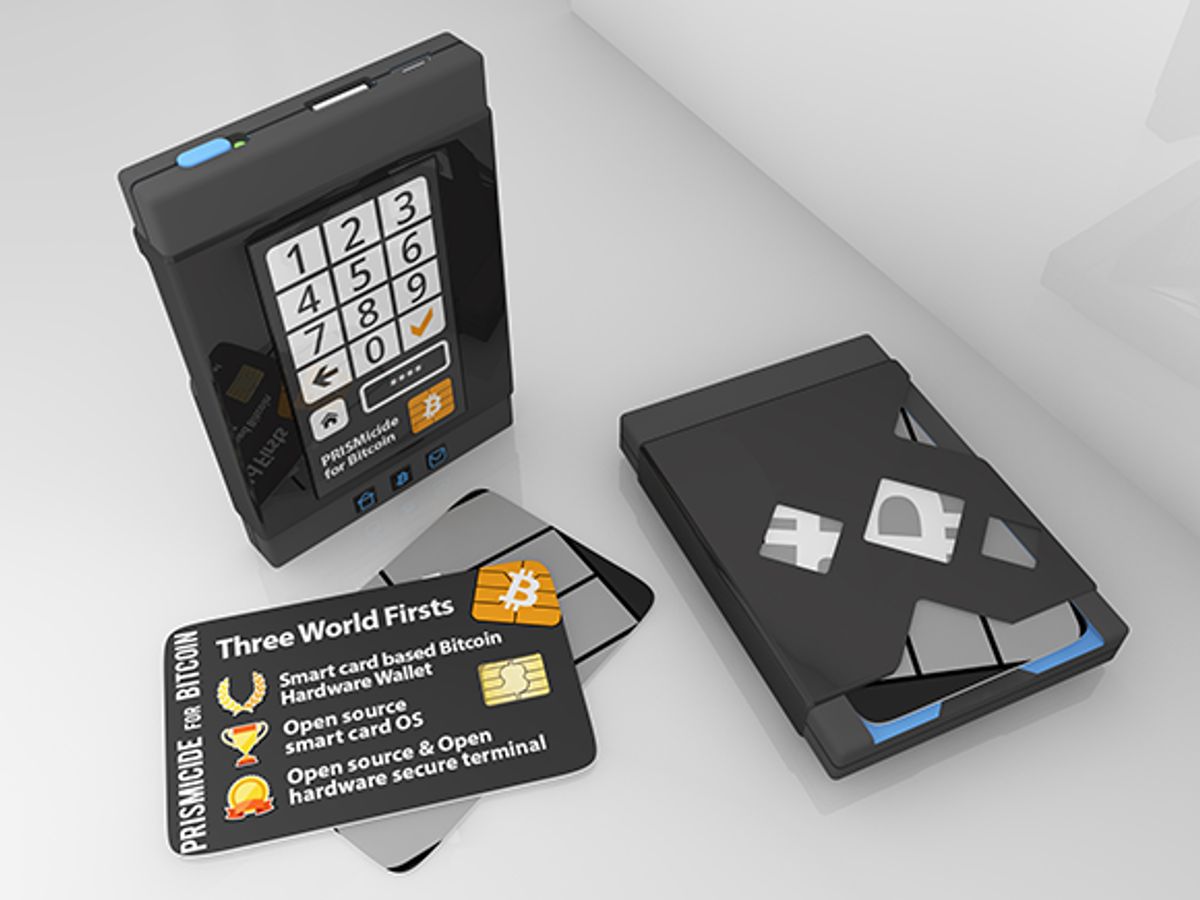In the rapidly evolving world of digital currencies, safeguarding assets has become a paramount concern for investors and users alike. The emergence of physical crypto wallets, also known as hardware wallets, marks a significant advancement in the quest for secure storage solutions. This article delves into the importance of these devices and provides insights into selecting and utilizing them effectively to protect your digital currencies from theft, scams, and other security breaches.
Key Takeaways
- Hardware wallets provide superior security by keeping private keys offline and reducing the risk of online hacking attempts.
- Regularly backing up wallet data in multiple secure locations is crucial for recovering access to your assets if needed.
- Understanding common scam tactics and how to avoid them is essential for protecting your investments in the cryptocurrency space.
- Using separate wallets for long-term savings and daily transactions can enhance security and management of digital funds.
- Continuous education and the implementation of strong cybersecurity practices are vital for maintaining the integrity of your crypto assets.
Understanding the Importance of Secure Crypto Storage

The Role of Cryptocurrency Wallets
Cryptocurrency wallets are pivotal in the realm of digital currencies, serving as the gatekeepers of your assets. They are not just for storage; wallets enable the sending, receiving, and management of cryptocurrencies. Wallets come in various forms, each with its own security features and convenience levels.
- Hardware wallets provide offline security, making them less vulnerable to online threats.
- Software wallets offer ease of use and are readily accessible from connected devices.
- Paper wallets are a physical means to store cryptocurrencies, though they lack the dynamic features of hardware and software wallets.
Proper key management and secure acquisition practices are crucial for safeguarding your digital assets. It’s essential to understand the different types of wallets and choose one that aligns with your security needs and usage habits.
In summary, wallets play a critical role in the security and management of cryptocurrencies. Whether you opt for a hardware, software, or paper wallet, the priority should always be to protect your investment with diligent practices.
Comparing Hot and Cold Wallets
When it comes to cryptocurrency storage, the choice between hot and cold wallets is pivotal. Hot wallets are connected to the internet, offering convenience and quick access for daily transactions. In contrast, cold wallets are offline devices, providing enhanced security for long-term asset holding.
- Hot Wallets: Typically software-based, accessible on various devices, and more vulnerable to online threats.
- Cold Wallets: Hardware-based, less susceptible to hacking, and ideal for storing large amounts of cryptocurrency securely.
Choosing the right type of wallet is a balance of security and accessibility. For those with significant investments, cold wallets are often preferred due to their robust security features. However, for active traders and daily users, hot wallets provide the necessary speed and convenience. It’s not uncommon for users to employ a hybrid approach, utilizing both wallet types to optimize security and functionality.
Choose between hot and cold wallets based on security needs and asset volume. Paper wallets offer high security but require physical protection. Hybrid approach often used for crypto storage.
The Evolution of Hardware Wallets
As the cryptocurrency market has matured, so too have the methods for securely storing digital assets. Hardware crypto wallets offer superior security by keeping private keys offline, thus shielding investors from the myriad of cyber threats that plague online storage solutions. These physical devices, often resembling USB drives, serve as a bulwark against unauthorized access to one’s cryptocurrency.
Choosing the right hardware wallet is a critical decision for any crypto holder. It involves assessing various factors such as security features, storage capacity, and ease of use. While the initial cost may be higher than that of hot wallets, the investment in a hardware wallet is considered worthwhile for the enhanced security and peace of mind it provides. Below is a list of considerations to keep in mind when selecting a hardware wallet:
- Security protocols and features
- Compatibility with different cryptocurrencies
- Backup and recovery options
- User interface and experience
- Cost and availability
Remember, the evolution of hardware wallets is a response to the need for more secure crypto storage solutions. As technology advances, these devices continue to offer robust protection for digital currencies, making them an essential tool for long-term cryptocurrency traders and investors.
Choosing the Right Hardware Wallet

Features to Look for in a Hardware Wallet
When selecting a hardware wallet, it’s crucial to prioritize security and reliability. Look out for wallets that have strong security features like encryption and two-factor authentication (2FA). These features ensure that even if the device falls into the wrong hands, unauthorized access is prevented.
Hardware wallets are the preferred choice for long-term cryptocurrency traders due to their enhanced security. The offline nature of these devices safeguards against remote hacking attempts.
Additionally, consider the ease of use and compatibility with other software. A wallet that supports interoperable standards, such as BIP39 for seed phrase words, offers flexibility and future-proofs your investment. Below is a list of essential features to consider:
- Enhanced security measures (e.g., encryption, 2FA)
- Recovery phrase support
- User-friendly interface
- Compatibility with multiple cryptocurrencies
- Reputable brand with positive reviews
- Backup options
Remember, while hardware wallets provide superior security, they come at a cost and may offer a less intuitive user experience compared to hot wallets.
Popular Hardware Wallet Models
When selecting a hardware wallet, it’s crucial to choose a model that has a strong reputation for security and user satisfaction. The most popular hardware wallets offer a blend of security, ease of use, and support for a wide range of cryptocurrencies.
- Trezor Model T: Known for its touchscreen interface and support for over 1,000 coins.
- Ledger Nano X: Features Bluetooth connectivity and can manage up to 100 apps simultaneously.
- KeepKey: Offers a straightforward user experience with a larger display.
- Coldcard: Emphasizes Bitcoin security and is popular among advanced users.
While these models are among the most trusted, it’s essential to conduct thorough research and consider your specific needs before making a purchase. Remember, the cost of a hardware wallet is a small price to pay for the security of your digital assets.
The choice of a hardware wallet can significantly impact the safety of your cryptocurrencies. Opting for a well-established model with a proven track record is advisable to ensure the highest level of protection against potential threats.
Setting Up and Using Your Hardware Wallet
Once you’ve chosen your hardware wallet, the setup process is crucial to ensure the safety of your digital assets. Begin by initializing your device, which includes creating a PIN code and a recovery phrase. The recovery phrase is a critical component of your wallet’s security; it allows you to regain access to your funds if the device is lost or damaged. Make sure to write down the recovery phrase and store it in a secure location separate from your wallet.
To start using your hardware wallet, connect it to your computer or smartphone and follow the manufacturer’s instructions to create a new wallet. Transfer your cryptocurrency from exchanges or other wallets to your new hardware wallet by using the public address provided by the device. It’s important to verify that the address on your computer screen matches the one on your hardware wallet’s display to prevent any man-in-the-middle attacks.
Remember, your hardware wallet is your personal vault. Regularly update its firmware and practice safe handling to maintain its integrity and the security of your investments.
For ongoing use, always disconnect your hardware wallet when not in use and store it in a safe place. By taking these steps, you’re not just storing cryptocurrency; you’re safeguarding your financial sovereignty.
Best Practices for Wallet Security

Regular Backups of Wallet Data
Ensuring the safety of your digital assets requires a diligent backup strategy. Test your backups regularly to confirm that your recovery process is effective and reliable. During the setup of your wallet, it’s crucial to verify that the restoration process works as intended.
When backing up wallet data, consider the following steps:
- Use strong and unique passwords, and enable two-factor authentication (2FA).
- Store backup copies of your wallet’s recovery phrase or private keys in a secure, offline location.
- Keep your wallet software and firmware up to date to mitigate security risks.
- Be wary of unknown or untrusted sources to avoid phishing and other scams.
Balance security and usability by choosing backup solutions that offer strong encryption and the option for cold storage. Maintain data sovereignty by selecting top desktop wallets that prioritize security.
Remember, a backup is only as good as its last test. Make it a habit to periodically check your backups to ensure that your digital currencies remain accessible and secure.
Educating Yourself on Scam Tactics
In the realm of digital currencies, knowledge is your best defense against scams. Scammers often deploy a variety of tactics to trick individuals into compromising their assets. One prevalent method is the crypto phishing scam, where fraudsters masquerade as legitimate services to deceive users into divulging sensitive information.
Always be vigilant when dealing with unsolicited communications. Scrutinize email addresses and URLs to ensure their legitimacy, and remember that genuine platforms will never ask for your private keys or recovery phrases.
Here are some common signs of a scam to watch out for:
- Unsolicited contact or pressure to act quickly
- Promises of guaranteed returns or free money
- Requests for private information or upfront payments
- Unverifiable credentials or lack of transparency
By familiarizing yourself with these red flags and maintaining a healthy skepticism, you can protect your digital assets from nefarious actors.
Maintaining Separate Wallets for Different Purposes
Diversifying your cryptocurrency holdings across multiple wallets can significantly enhance security. By using separate wallets for different purposes, you mitigate the risk of total loss in the event of a security breach. For instance, you might have a primary hardware wallet for long-term savings and a mobile wallet for daily transactions. This approach not only secures your investment but also organizes your funds for better financial management.
When considering wallet diversification, it’s essential to understand the role of wallet addresses and private keys. Proper management of these elements is crucial for maintaining the integrity of your assets.
Here are some practical steps to maintain separate wallets effectively:
- Diversify Across Wallets: Use different wallets for savings and daily spending to minimize risk exposure.
- Research Before Installing Wallets: Always select reputable wallets and research their security track record.
- Key Location Security: Store backup keys in secure, separate locations to prevent unauthorized access.
Protecting Your Investment from Crypto Scams

Identifying Common Scam Strategies
In the ever-evolving landscape of digital currencies, scammers are constantly devising new tactics to defraud investors. Being aware of the most common scam strategies is crucial for protecting your assets. Here are some prevalent scams to watch out for:
- Bitcoin investment schemes: Promising high returns with little risk, these schemes often collapse, leaving investors with significant losses.
- Rug pull scams: Developers hype up a new cryptocurrency project only to disappear with the funds once a substantial amount is invested.
- Romance scams: Scammers use emotional manipulation to convince individuals to invest in fraudulent opportunities.
- Phishing scams: Attempts to trick individuals into revealing sensitive information like private keys or login credentials.
- Man-in-the-middle attacks: Interception of transactions or communications to redirect funds or data.
- Social media cryptocurrency giveaways: Fake promotions promising rewards in exchange for small investments or personal information.
It’s essential to approach every investment opportunity with skepticism and conduct thorough research before committing funds. Double-check all addresses, URLs, and the legitimacy of social media promotions to avoid falling victim to these deceptive practices.
Steps to Take if You Suspect a Scam
If you suspect that you’re being targeted by a crypto scam, taking immediate and appropriate action is crucial. Do not engage further with the suspected scammer and avoid sharing any personal information or making any transactions. Here’s a list of steps to follow:
- Cease all communication: Stop all interactions with the party in question.
- Verify information: Use resources like cryptoconsortium.org to check certificate IDs and verify identities.
- Secure your accounts: Change passwords and enable two-factor authentication on all related accounts.
- Report the incident: Contact relevant authorities, such as the FTC or your local cybercrime unit.
- Seek professional advice: Consult with a legitimate crypto recovery service or legal advisor.
Remember, scammers often create a sense of urgency to provoke rash decisions. Take a moment to assess the situation calmly and act with deliberation.
It’s also important to educate yourself on common scam tactics. Be skeptical of unsolicited offers and always double-check URLs and email addresses for authenticity. By staying informed, you can significantly reduce the risk of falling victim to scams.
Community Resources for Scam Prevention
In the dynamic world of cryptocurrency, staying ahead of scammers is a community effort. Leveraging community resources can be a powerful tool in scam prevention. These resources often include user-generated content, such as forums and social media platforms, where individuals share their experiences and alert others to potential scams.
- Educate yourself on common scam tactics and warning signs.
- Verify information using trusted community resources like the Crypto Consortium’s certificate lookup.
- Engage in community discussions to stay updated on new scam strategies.
- Report suspicious activities to community moderators or relevant authorities.
By actively participating in community vigilance, you can contribute to a safer crypto environment for everyone.
Remember, the collective knowledge and support found in these communities can serve as your first line of defense against fraudulent schemes. It’s essential to approach recovery services with caution, as the distinction between legitimate assistance and scams can be subtle. Always look for transparency, professional communication, and verifiable success stories before engaging with any service.
Advanced Security Measures for Crypto Enthusiasts

Using Non-KYC Exchanges and Self-Custody Wallets
The shift towards self-custody wallets and non-KYC exchanges is a response to the desire for greater security and autonomy in managing digital assets. Non-custodial wallets give you complete control over your private keys, ensuring that you are the sole guard of your wallet’s security. This contrasts with custodial solutions where the service provider holds your keys, posing a risk of loss or freezing of assets without notice.
The use of non-KYC exchanges complements self-custody by allowing you to trade without surrendering personal information, thus reducing exposure to identity theft and enhancing privacy.
Adopting non-custodial wallets and non-KYC exchanges requires a proactive approach to security. Here are some steps to consider:
- Use a strong password and write down your seed phrase.
- Implement two-factor authentication (2FA) and keep your software updated.
- Focus on secure cryptocurrencies, primarily Bitcoin, and avoid altcoins that may present additional risks.
- Educate yourself continuously, as knowledge is a crucial defense against potential threats.
Implementing Strong Cybersecurity Practices
In the realm of digital currency, implementing strong cybersecurity practices is not just a recommendation; it’s a necessity. As you secure your cryptocurrency, it’s crucial to choose the best wallet based on security, compatibility, and convenience. The top wallets of 2024 offer a variety of options tailored for advanced security measures, especially for long-term storage.
Cybersecurity extends beyond the wallet itself. It encompasses the entire ecosystem in which your digital assets operate. This includes your personal devices, network environment, and even your approach to software updates and password management.
Here are some essential steps to enhance your cybersecurity:
- Use a password manager to create and store complex passwords.
- Enable two-factor authentication (2FA) on all accounts.
- Regularly update all software to patch vulnerabilities.
- Educate yourself on the latest security breaches and how they may affect you.
- Consider the security of your mobile devices and whether they should contain crypto-related apps.
- Be wary of public WiFi networks, which can be hotspots for malicious activities.
Continuous Learning for Enhanced Protection
In the ever-evolving landscape of digital currency, continuous learning is crucial for maintaining a high level of security. As threats become more sophisticated, staying informed about the latest security measures can make a significant difference in protecting your investments.
- Regularly update your knowledge on new wallet technologies and updates.
- Stay aware of emerging scam tactics and how to counter them.
- Engage with community forums and resources to share experiences and advice.
Balancing security with simplicity is key. Overcomplicating your security measures can lead to mistakes that are just as risky as under-protecting your assets.
By applying the lessons learned from historical data and community insights, you can preemptively enhance your ability to identify and prevent fraudulent activities, thus bolstering the security of your digital currencies.
Conclusion
As the digital currency landscape continues to evolve, the importance of robust security measures for safeguarding assets becomes paramount. Physical crypto wallets, particularly hardware wallets, have emerged as a critical tool for investors seeking to protect their digital wealth from online threats. By storing private keys offline, these devices offer a shield against cyberattacks, ensuring that investments remain secure. Coupled with diligent backup strategies, education on scam prevention, and adherence to best practices, individuals can create a comprehensive defense system for their cryptocurrencies. Ultimately, the rise of physical crypto wallets signifies a maturing market that prioritizes security, providing users with the confidence to navigate the digital currency space safely.
Frequently Asked Questions
What are the benefits of using a hardware wallet for cryptocurrency storage?
Hardware wallets provide enhanced security by keeping your private keys offline, which makes them immune to online hacking attempts. They are physical devices that store cryptocurrency away from the reach of hackers, offering an added layer of protection since they are not continuously connected to the internet.
How often should I back up my wallet data?
It’s crucial to regularly back up your wallet data, including your private keys and recovery phrases, in multiple secure locations. This helps ensure that you can regain access to your assets even if one backup is compromised or lost.
Why is educating myself on common scam tactics important?
Understanding common scam tactics is vital to protect your digital assets. By being aware of the strategies scammers use, you can better safeguard your investment and avoid falling victim to fraudulent schemes.
What should I consider when choosing a hardware wallet?
When selecting a hardware wallet, look for features such as ease of use, supported cryptocurrencies, security measures like pin codes or biometric authentication, backup and recovery options, build quality, and compatibility with other devices or software.
Is it a good idea to maintain separate wallets for different purposes?
Yes, maintaining separate wallets can enhance security. Consider having a hardware wallet for long-term storage of significant funds and a mobile or hot wallet for day-to-day transactions with smaller amounts.
What are some advanced security measures I can take as a crypto enthusiast?
Advanced security measures include using non-KYC exchanges for anonymity, self-custody wallets for full control over your assets, implementing strong cybersecurity practices like using a password manager and two-factor authentication, and continuously learning about crypto security to enhance protection.





